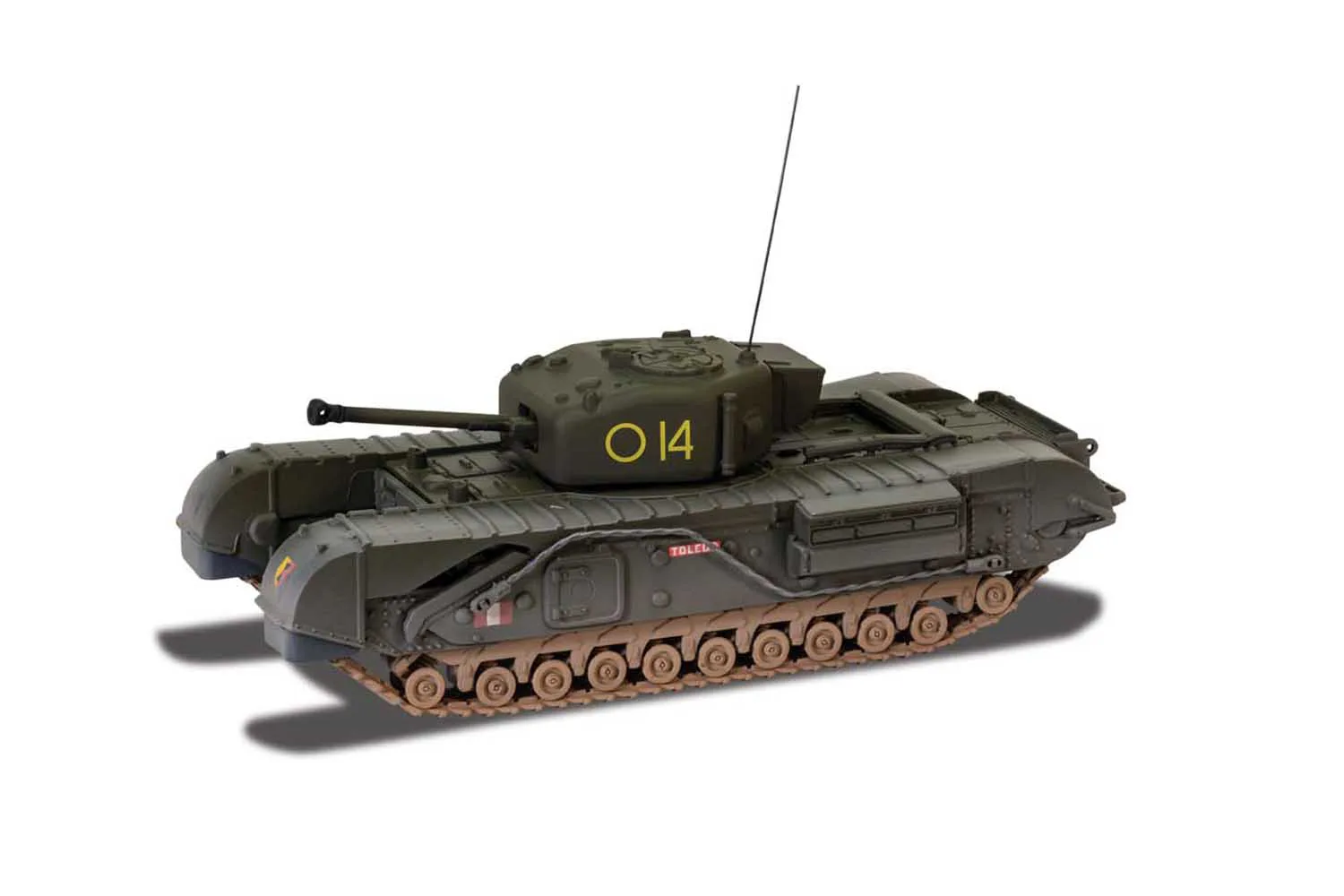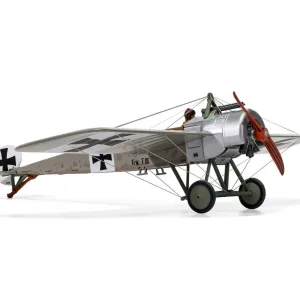British Churchill Mk.IV Tank, ‘To Catch a Tiger’
With the success of Operation Torch and the Allied landings in French North Africa, the German Afrika Korps were now being threatened by the British Eighth Army advancing from El Alamein and the Torch forces coming through Algeria. Hitler was determined to reverse this situation and sent significant reinforcements through the port city of Tunis, including around 20 of the powerful new 56 ton Tiger I tanks. These fearsome machines were significantly superior to anything the Allies had available in North Africa, but the battle situation was by now very much against them and there simply were not enough Tigers available to arrest the deteriorating situation. Elements of the 48th Royal Tank Regiment were the first Allied units to come up against the German Tigers and it would not be long before their Churchills started to fall victim to the 88mm guns of the new German tank – Allied military planners were desperate to get their hands on a Tiger and they wouldn’t have to wait long. Following heroic actions by troops of the 2nd Battalion, Sherwood Foresters, a Tiger had its turret disabled during fighting at Guriat el Atach and was abandoned almost intact by its crew. The Foresters had to repel numerous enemy counterattacks over the next couple of days, but were determined to hold on to their trophy. Relieved by strong reinforcements two days later, they had presented the British with a most valuable prize, the first complete example of a German Tiger tank.
Following months of intense training in the remote Suffolk countryside, the tank crews which made up the majority of the 48th Battalion Royal Tank Regiment and their newly arrived Churchill tanks made the significant move to Ayrshire to undergo what would be the final stages of their pre-deployment workup. The preparations in Scotland confirmed they were to be deployed as an effective armoured striking force, but where would be their destination? By the middle of March 1943 they had their answer – North Africa and the Allied offensive to finally push the Afrika Korps out of the continent. Loading aboard ships in Glasgow, they were bound for the port town of Bone (Annaba) on the north-eastern corner of Algeria and close to the fighting in Tunisia, where they would be sent to bolster Allied units pushing towards the ultimate prize of Tunis. Extremely confident in the capabilities of their Churchill tanks, this confidence was shaken somewhat during their final combat preparations in the town of Ghardimaou in western Tunisia. Close to where they were stationed, a dump containing the charred hulls of destroyed Churchills provided a morbid fascination, particularly the large numbers of shell holes each one appeared to exhibit. Many months of training was now at an end and they were about to be thrust into the melee of battle.





